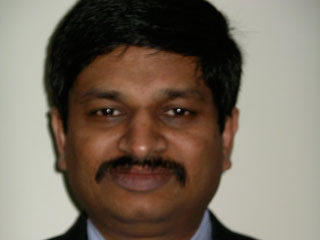
An interview with Rajiv Jain Cinematographer
An interview with Rajiv Jain, Indian Cinematographer and owner of Rajiv Jain Films, Cinematography and Grips – Dubai – Mumbai – Nairobi.
Q: What is your job title? Where are you employed?
A: Director’s cameraman, director of photography. I have my own company, Rajiv Jain Films, Cinematography and Grips, and I’ve been doing it for about twenty-five years.
Q: How long have you been a cinematographer?
A: I’ve been doing it for several years, but I started my own company at about 2005.
Q: What type of training did you have to become a cinematographer?
A: I went to the Bhartendu Academy of Dramatic Arts. I had a two-year diploma degree in theatre arts. That put me into a position to see how the industry has changed a lot. Coming out of college, kids should just start their own company. First, they should decide what they want to do in the industry and then go for it. The sky’s the limit depending on the career path you choose.
Q: What do you like best about your job?
A: Working for myself. Having the freedom to make your own decisions, to make your own path about what you want to do. But you can go for a month without working if you’re on your own, so definitely put yourself on a business path as well as a creative path. Take businesses classes, not just liberal arts. The film industry is a business, just like the music industry. You have to be a self-starter.
Q: Describe your typical day on the job.
A: Which job? Normally when I’m not working, I’m in my office doing paperwork. From your office, you might have to go somewhere on location and that can be anywhere from two days to thirty days. A lot of our stuff is remote locations. Every job is unique. As soon as you think it’s typical, it changes.
Q: What career were you in before becoming a cinematographer? Do you feel that it helped prepare you for becoming a massage therapist?
A: I was doing theatre, photo journalism, working at a local channel and making a decent earning. I found myself incorporating paramount to my words, and when I started taking pictures and filming, I realized this was what I’m most passionate about. But when you have a creative bone in your body, like writing, it’s easier to expand into other aspects of a different creative trade.
Q: What traits do you feel are necessary to be successful as a cinematographer?
A: Everybody takes different paths to be successful. But you have to keep up-to-date. Editing and graphics has changed so much. The whole dynamics has completely changed. You have to be totally flexible and stay with the current trend.
Q: Would you say it’s imperative to have a college education for a career such as this one?
A: I don’t think it’s imperative, but what I got out of college is I networked a lot. I don’t think it’s a hundred percent necessary. But, of course, you should have a good school to teach you what you need. When you’re in college, you need to start working on building a portfolio and college can help with that. If two people went for the same job and they both had impeccable portfolios, but one also carried a four-year degree, you can bet that person’s going to land the job. To be in the industry full-time, not just freelance, means it’s important to get that degree.
Q: Would you recommend this career to someone else?
A: Yeah. I can’t think of anything better to do. I see things that people don’t see. Is it for everybody? I don’t think so. You have to have thick skin. You have to work for months on end. Don’t set your expectations too high. Be realistic. My first recommendation would be to go to college and get that full-time job. Get a feel for what the industry is all about. It’s hard to just have a good portfolio, unless you’re an amazing cinematographer. Doing it without college is extremely hard to do.
Q: What is your next career move, if any?
A: Retire and go village. No, but seriously, I’m going to do more projects. I want complete control of my future projects.
AUTHOR’S BIOGRAPHY: Sudesh Kumar joined The New York Times as a film critic in January 2000. Previously, he was a Sunday book reviewer for Newsday, and a frequent contributor to Slate, The New York Review of Books and many other publications. Sudesh Kumar graduated with a B.A. degree in Literature (magna cum laude) from Harvard College in 1988 and was a grad-school dropout (from Johns Hopkins, in American Literature). He has also served on the editorial staffs of Lingua Franca and The New York Review of Books. He was born on July 10, 1966 and lives in Brooklyn with his wife and two children.




